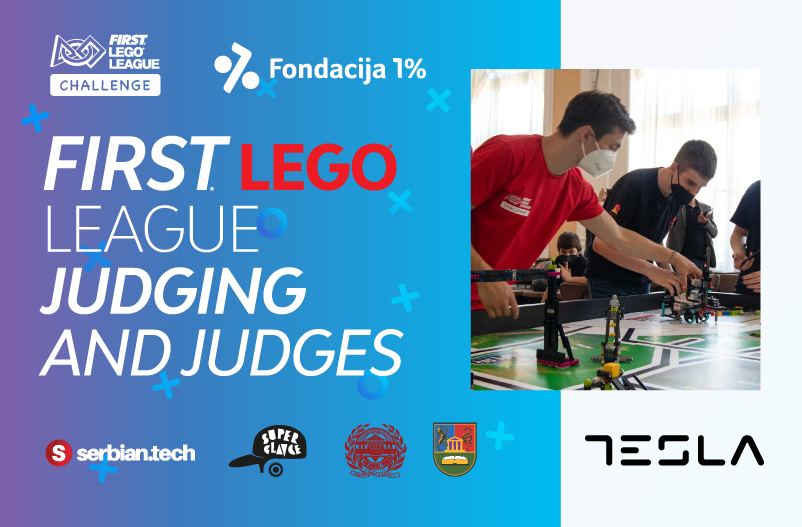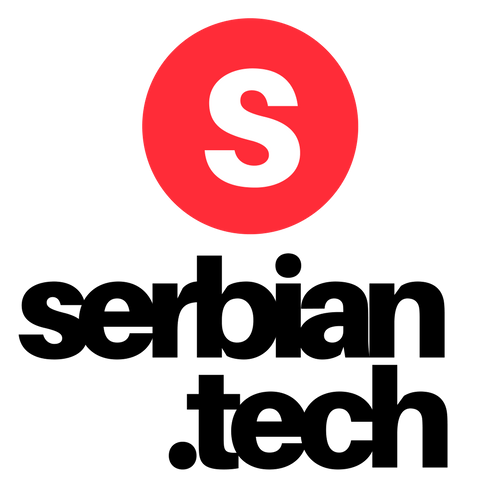What does the evaluation look like and how are the referees selected? Recently, the FIRST LEGO League competition was held at the First Kragujevac Gymnasium. The LegoBusters team from the First Kragujevac High School won, which qualified them for further competition in Slovenia. In addition to them, the teams ElektRobot, LEGOMasters and Noobovi will also go to Slovenia.
Although we have written about this competition on several occasions, through this text we want to inform you in more detail on what it actually looks like. Ten teams presented their solutions, and nine referees were in charge of regularity during the competition, who evaluated four tasks important for the development of team spirit, cooperation and innovation. The competition evaluates:
– Basic values
– Robot game
– Robot design
– Project
Core values
Core values are the cornerstone of the program. They are among the core elements that distinguish FLL from other programs of its kind.
By accepting the Core Values, participants learn that friendly competition and mutual gains are not separate goals and that mutual assistance is a pillar of teamwork.
It takes place by referees talking to children. They talk about how they prepared for the competition, how they divided the roles among themselves, who took over what part of the job. They also talk about challenging situations and how they solved them. Through such a conversation, children’s approach to competition can be seen. As they struggled with their habits, they made changes and showed flexibility in behavior within teamwork.
The six core values to be assessed are:
- Innovation
- Research
- Teamwork
- Inclusion
- Fun
- Impact
Besides the conversation, it follows through the tasks that are given on the spot. When the task is set, the referees observe how the children apply the above values during the activity. These are some values that can be found in every aspect of life. That is why children mustn’t be specially prepared to show these values, but to do so in a spontaneous way – which is a characteristic of children’s approach to activities like this.
Vuk Ninić and Aljoša Šip were referees in this part of the competition.
Robot game
During the robot game – children creatively learn programming and acquire technical skills, develop a strategy for designing and programming their robot to complete as many missions as possible. During this part of the competition, the team:
– Identifies rescue missions
– Designs, makes and programs LEGO robots to solve missions
– Tests and perfects its program and design
Stefan Zdravković, Dušan Dimitrijević and Mihailo Šundović monitored and evaluated the obstacles that the robots successfully completed through the rounds
Some of the robot’s activities are moving, recording, transporting, activating, or delivering objects. It is necessary to solve as many missions as possible in 2 and a half minutes.
Robot design
In the robot design, children present their strategy to the referees, how the robot is programmed, and how they will complete the assigned missions. This encourages children’s creativity and thinking outside the box. Critical thinking is also developed, and children are taught to help solve a problem with the opposing teams or ask for help.
Zaviša Gordić and Saud Suljović assessed the regularities of the robot design game.
Project
The project is the task of presenting the project to the judges in the best way. In that way, they acquire communication, presentation, and public speaking skills. This year’s theme was RePlay and aimed at encouraging people to engage in physical activities.
This topic was covered by over 325,000 children worldwide. Through a combination of different scientific disciplines, the teams had the task to present innovative solutions to this problem, in order to implement it and to present it to the referees.
The referees of this part of the competition were Sonja Vasić and Nemanja Đorđević.
Organizers
The organizers of this year’s FIRST LEGO League competition in Serbia were SerbianTech and Fondacija 1%. The work and correctness of the trial was monitored by Anđela Baša, who founded the entire team of referees and was available for all necessary advice. The competition was played without any problems, and we wish the winning teams good luck in the regional competition.
We will start preparations for next year soon, so stay with us.




Recent Comments